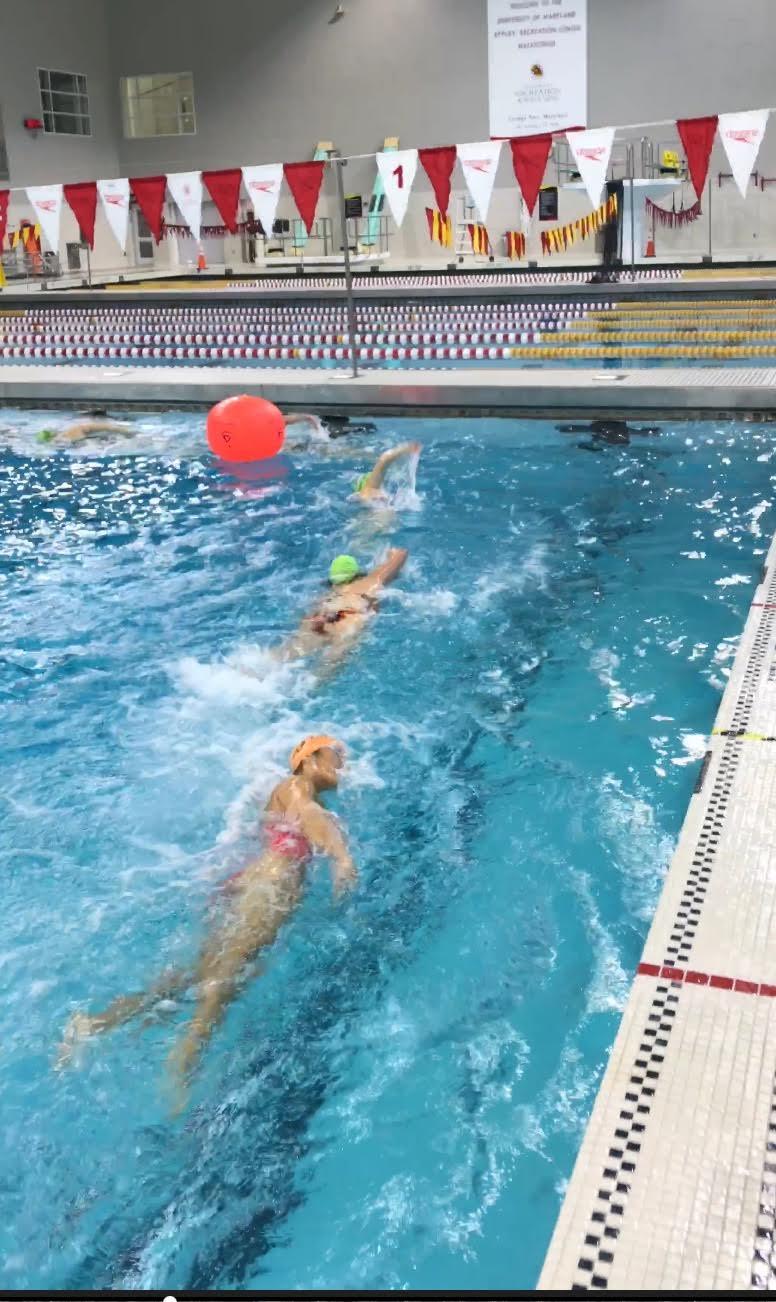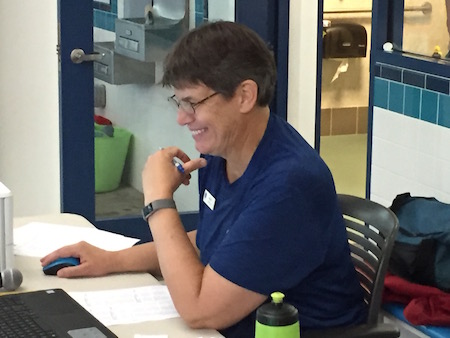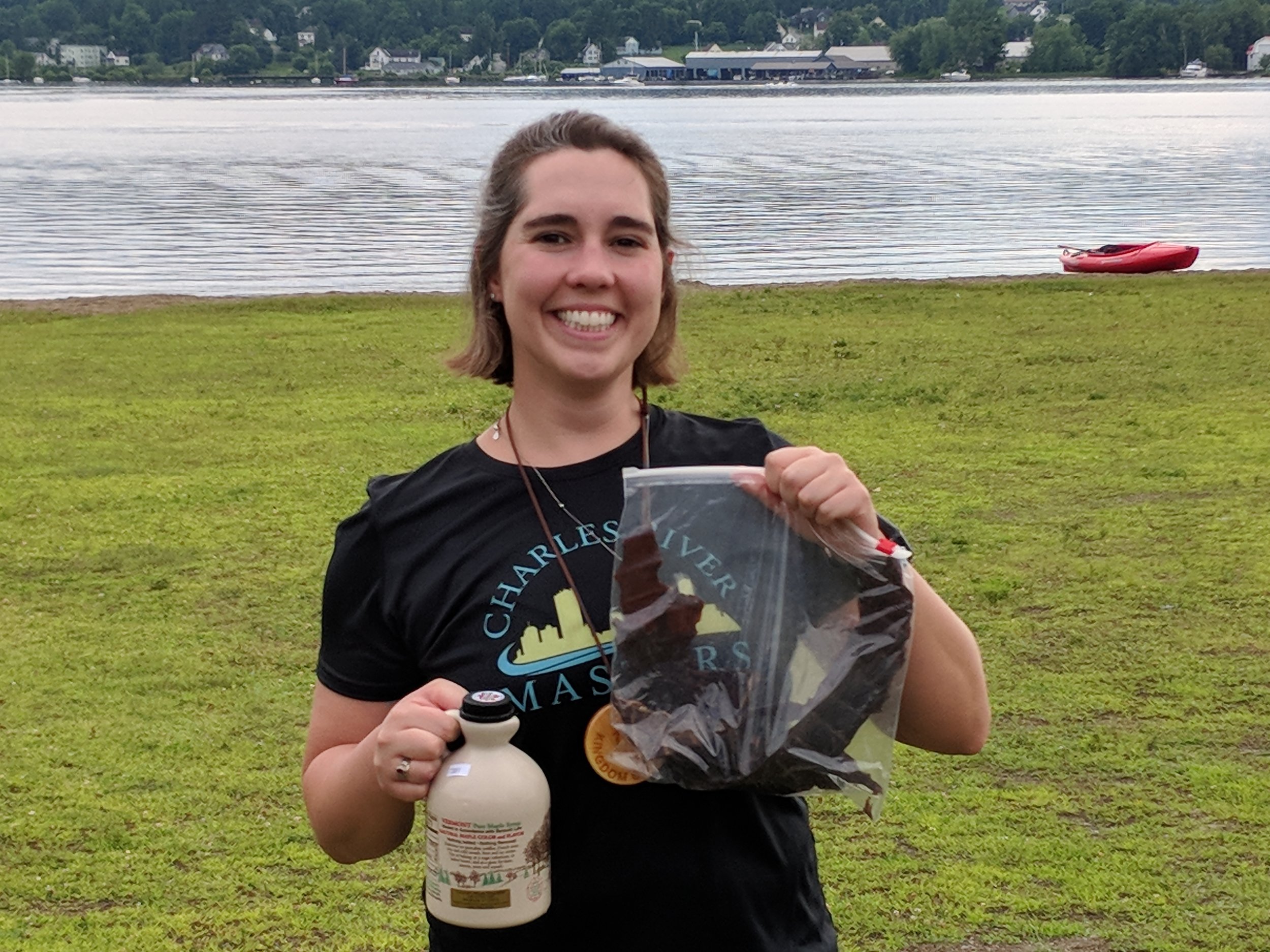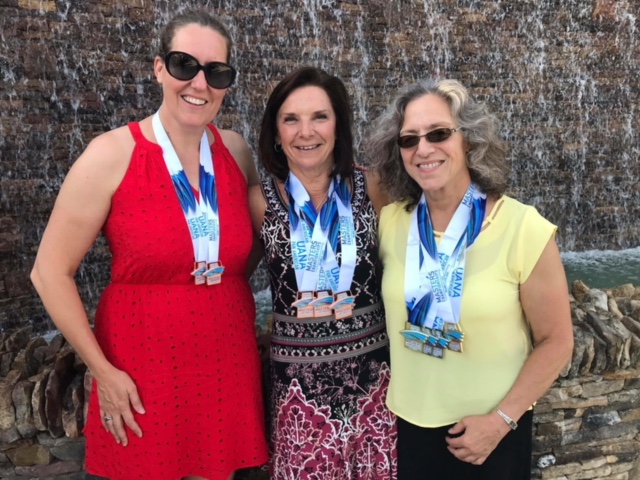by Alana Aubin, NELMSC Communications Chair
Dan Rogacki and Mindy Williams
WORCESTER, MA -- Three world records and one national record went down at the 2018 NELMSC and Colonies Zone SCM Championships, held December 8-10 at Worcester Polytechnic Institute.
New Englander Fritz Bedford of the UV Rays shaved 0.10 off the world record in the men's 55-59 50-meter backstroke in 27.86. Drew Modrov (CHEL) took .77 off the men's 25-29 400-meter freestyle record with his time of 3:52.83 and Erika Braun (NCMS) bettered her own women's 45-49 100-meter freestyle record of 58.21 with a 57.89. Steve Hiltabiddle (1776) set the national record in the men's 50- 54 50-meter butterfly, taking it from 25.98 to 25.60.
Charles River Masters
In individual scoring, Dan Rogacki (NEM-PITY) scored 215 points to win the men's high point award, while Mindy Williams (NEM-GSP) and Ann Louise Onton (CONN) tied for the women's title with 209 points. Kysa Crusco (NEM-GSP) picked up 196 points to take third on the women's side and Mark Keil (NEM-MAMA) and Modrov rounded out the men's podium with 177 and 170 points, respectively.
In the team competition, Charles River Masters beat host Worcester Area Masters and 2017 champ Connecticut Masters in large team scoring, 3340 to 3094 to 2682. In the medium team division, Great Bay Masters (1767 points) beat out Granite State Penguins (1674) for first, while Maine Masters (1385) narrowly defeated SwimRI (1378) for third place. Visiting teams UMAC Terrapin Masters (845), Chelsea Piers Fitness (661), and Landshark Masters (621) turned in strong showings in the small team division. Sarasota YMCA Sharks (290), North Carolina Masters (255), and Nutmeg Masters (246) were tops in the Squad division.




























